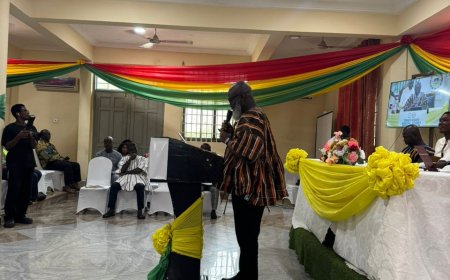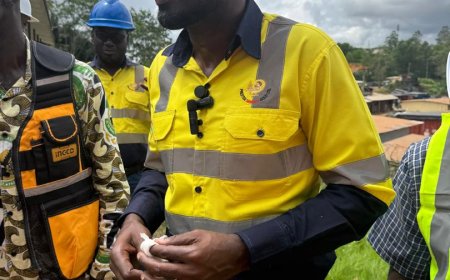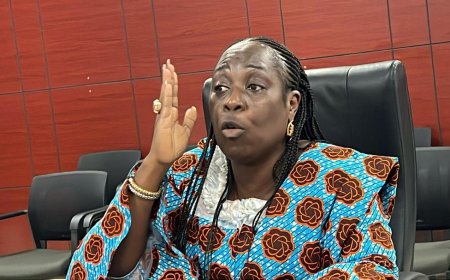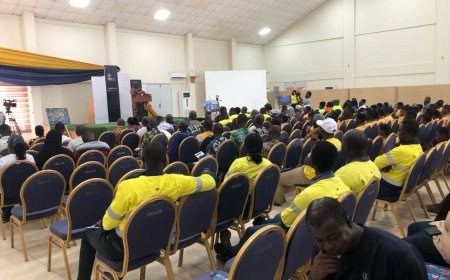Rising cases of hearing problems in children: Experts warn parents and public on ear health
A routine hearing screening exercise in Tarkwa has uncovered a troubling trend—many schoolchildren are living with untreated ear infections, foreign objects lodged in their ears, and early signs of noise-induced hearing loss.
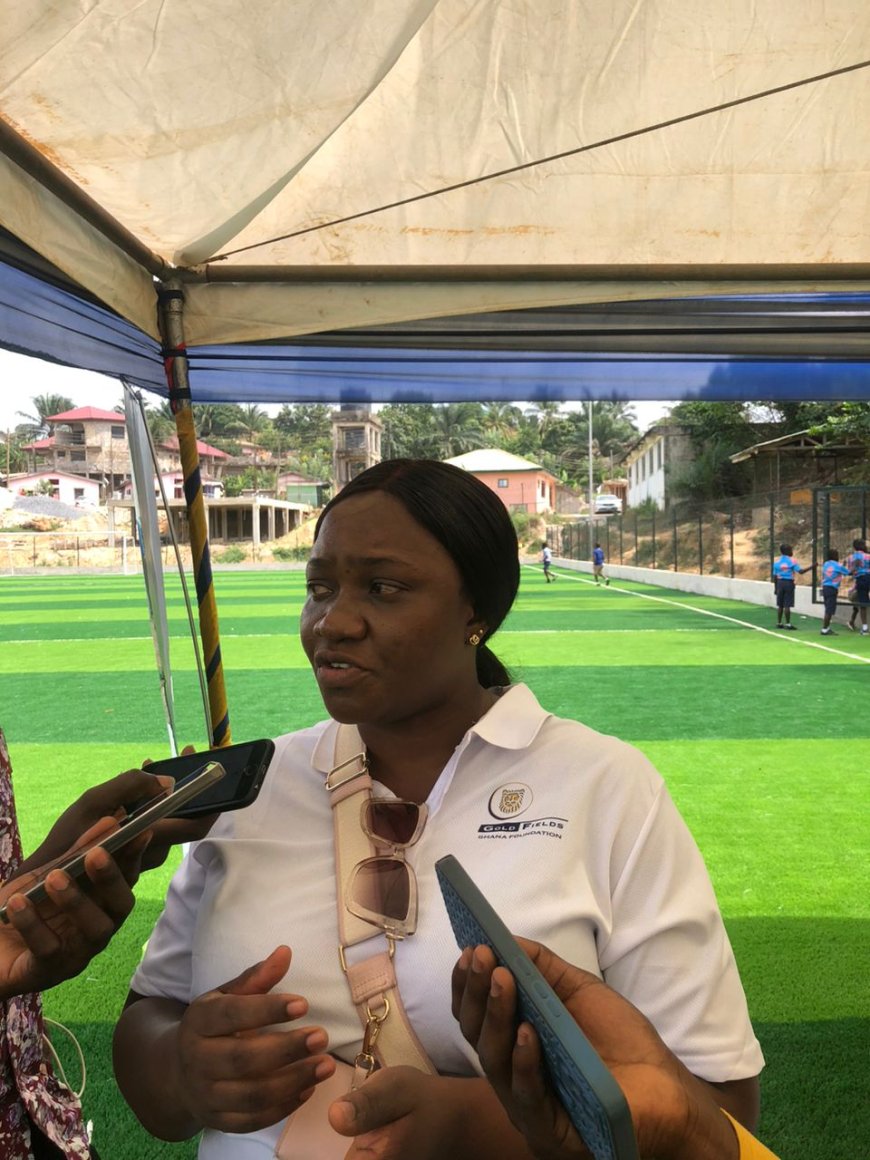
The screening, which was conducted by the Ear, Nose, and Throat (ENT) Department of Tarkwa Municipal Hospital in collaboration with the Gold Fields Ghana Foundation, was part of activities to mark World Hearing Day under the theme “Changing Mindsets: Empower Yourself to Make Ear and Hearing Care a Reality for All.”
Principal Nursing Officer for ENT, Judith Adoma Forkuoh, said early detection is critical in preventing hearing loss. She introduced the “Catch Them Young” initiative, which screens newborns for ear defects within the first week of life.
“If we detect a defect early, we can correct it rather than waiting for it to worsen. We are also checking the ears of schoolchildren because many of them may have infections or other conditions that parents are unaware of,” she explained.
However, initial screenings in three selected schools in Tarkwa Nsuaem have revealed a worrying number of hearing problems among children. According to Madam Forkuoh, many of the cases were linked to untreated infections, exposure to noise pollution, and poor ear care habits.
She highlighted fungal ear infections caused by dirty water, warning parents to be vigilant, especially when their children have colds.
“A simple cold can extend to the ears and nose. If left untreated, the infection will worsen and cause hearing damage. Parents must check on their children and seek medical attention if there is any sign of infection,” she urged.
Noise pollution: A growing threat to hearing.
Madam Forkuoh also raised concerns about noise-induced hearing loss, which is becoming more common due to excessive noise from milling machines, motorcycles, market loudspeakers, and funeral speakers.
“The ear can only tolerate a certain level of noise. If it exceeds that level, it causes damage. People working in milling shops should wear earplugs. Motorcyclists and those who preach with loudspeakers in public places should lower the volume. Even in markets and lorry stations, the constant honking of cars is affecting people’s hearing,” she cautioned.
She advised the public to avoid sitting close to loudspeakers at funerals and parties to prevent long-term hearing damage.
Shocking discoveries from school screenings.
Dr. Magdalene Bakari, Lead Specialist for Health Services at Gold Fields Ghana, revealed that the hearing screening at New Atuabo Saint Mary’s Anglican Basic School, John Taylor Municipal Assembly Basic School, and New Atuabo Community Basic School exposed several cases of foreign objects stuck in children’s ears, wax blockages, and undiagnosed infections.
“We found cotton buds, wax blockages, and even some objects that had started decomposing in the ears of some children. Many of these conditions have been left untreated for a long time, yet parents failed to notice or take action,” Dr. Bakari said.
She warned against the use of cotton buds, feathers, and pen caps to clean ears, stressing that they can cause severe damage.
“We extracted cotton from a pupil’s ear, which had absorbed moisture and started rotting. Cotton buds are not meant for ear cleaning. They cause more harm than good. Parents should stop using them,” she advised.
Dr. Bakari also expressed concern about parents attempting to treat ear infections at home instead of seeking professional medical care.
“If you notice a discharge from your child’s ear or signs of ear pain, do not administer your medication. Take them to a hospital immediately to avoid permanent damage,” she cautioned.
School authorities worried over parents’ negligence.
The head teacher of New Atuabo Saint Mary’s Anglican Basic School, Madam Kate Nkrumah, expressed frustration over parents’ lack of concern for their children’s hearing health.
“We often call on parents to take their children to the hospital when we notice hearing problems, but many of them ignore us. Now that the screening has identified cases, we hope parents will take action,” she said.
Some of the schoolchildren admitted to using foreign objects in their ears, such as matchsticks and pen caps, while one student shared how he got a cut on his ear while playing football and tried treating it with hot water instead of visiting a hospital.
Call for stricter noise pollution regulations.
Experts are calling on authorities to strictly enforce noise pollution regulations to protect the public from noise-induced hearing loss.
“Noise levels in Ghana are dangerously high, yet enforcement of Environmental Protection Agency (EPA) regulations remains weak. Excessive noise is permanently damaging people’s hearing, and we must act now to prevent a future crisis,” Dr Bakari warned.
As Tarkwa marks World Hearing Day, health professionals are urging parents, teachers, and the general public to prioritise proper ear care, early detection of infections, and noise control to prevent long-term hearing damage.
Source: Nana Esi Brew Monney
What's Your Reaction?
 Like
2
Like
2
 Dislike
0
Dislike
0
 Love
1
Love
1
 Funny
0
Funny
0
 Angry
0
Angry
0
 Sad
0
Sad
0
 Wow
0
Wow
0

